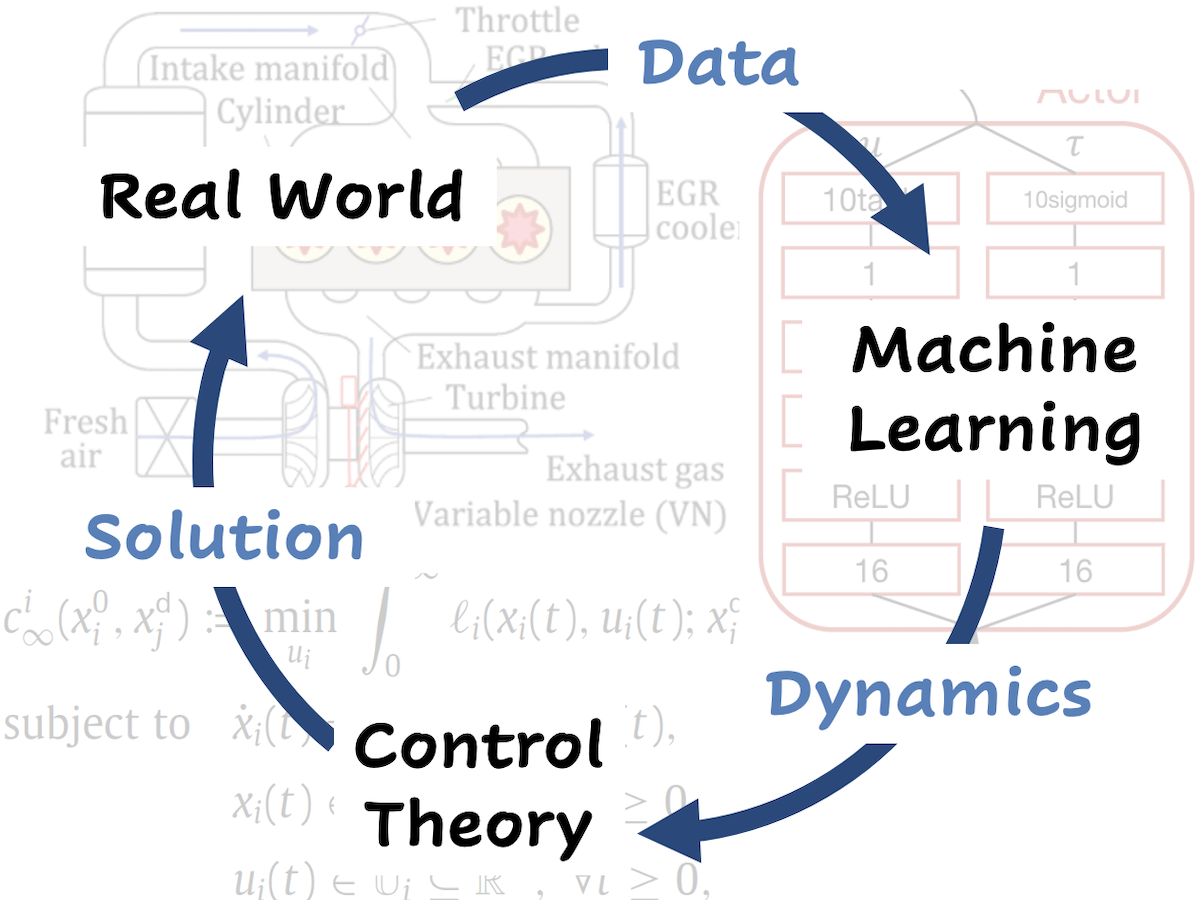This is a page to explain the research themes of our laboratory for those who have some idea of what control engineering is. Compared to other control engineering related laboratories (including those of other universities), our laboratory is characterized by its active use of advanced mathematics and theory of probability, statistics, and machine learning, depending on the need and academic interest.
Directions
We are working on theoretical construction and practical applications of system control based on the following three interrelated directions.
Data-driven modeling
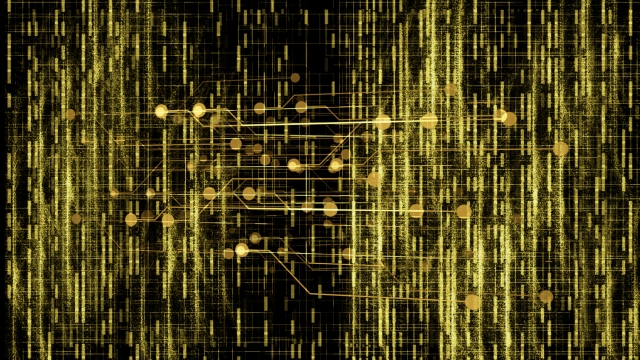
We have been conducting research on constructing mathematical models of dynamics from data, and have been leading this field, called “system identification,” since the days of the previous PI, Prof. Toru Katayama. In recent years, we have also been actively working on the integration with the machine learning field (see the related research group website), and are seeking a mathematical foundation for constructing models for control while incorporating various methods based on statistical learning theory, including deep learning.
Stochastic control theory

We are leading the field of “stochastic control theory,” which is concerned with dynamics under nondeterministic uncertainty that cannot be avoided in the real world. In particular, rather than vaguely introducing stochasticity into mathematical models, our research is characterized by approaches that explicitly incorporate the relationship with statistical learning theory and the inherent properties of the subject (e.g., rare events caused by wind gusts in wind power generation), and by research on how to effectively use stochasticity. We are also conducting research on the control of quantum mechanical dynamics.
Networked control systems

We are leading the field of “networked control,” which is the design of dynamics in which a large number of interacting subsystems, such as social systems, function properly as a whole. In particular, we are working on solving problems caused by autonomous and decentralized decision making, limited communication capacity and information acquisition, and the need to deal with large-scale systems.
On-going topics
System identification of Hidden Markov Models
A study of system identification methods for systems with discrete variables based on controllability, observability, and tensor decomposition.
Paper #Modeling #Stochastic system
Nonlinear system identification for model predictive control
We have developed a modeling method that captures nonlinearities using deep learning and has a simple structure that can withstand real-time optimization, and we are working with Toyota Central R&D Labs to verify its practicality.
Paper #Machine learning #Optimization #Industrial application
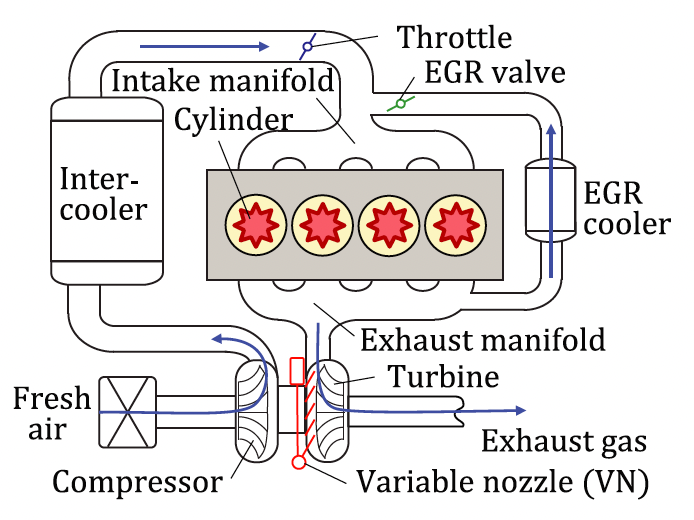
Bayesian approach to linear system identification
We are revisiting the theory of linear system identification from the standpoint of Bayesian statistics. Specifically, I am working on how to set up a prior distribution and continuous-time system identification using a generalized orthonormal basis.
Paper #Machine learning #Modeling
Controllability analysis of Gaussian Process State Space Models
We propose a controllability analysis method for systems identified by Gaussian process regression, based on the concept of path integral. A new concept of model sparsification is also introduced.
Paper1 Paper2 #Machine learning #Stochastic systems
Generative system identification
Using a generative model learning method, we propose a method that simultaneously gives the importance and confidence level in the state space during system identification.
#Machine learning #Modeling
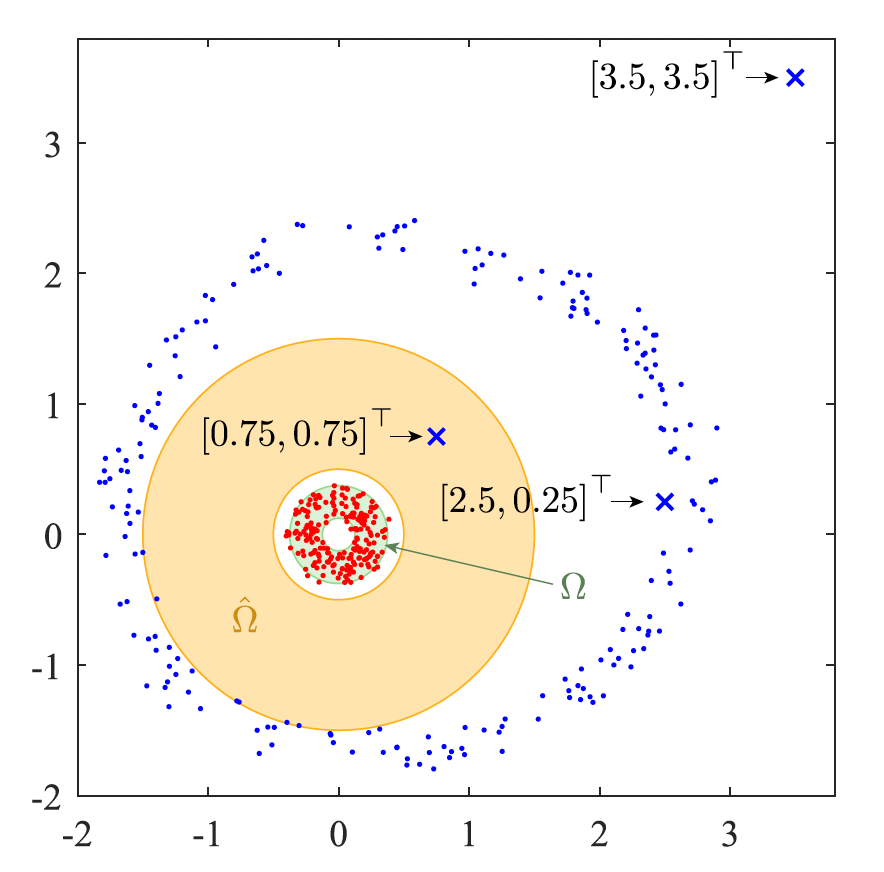
Mobility as a Service
In collaboration with the “Advanced Mathematical Science for Mobility Society” research unit, we are applying a sparse optimal control method to rebalancing in car sharing.
Preprint #Social system
Privacy in control systems
We are working on the characterization of differential privacy in networked control systems and theoretical analysis of the trade-off between control performance and privacy.
Paper1 Paper2 #Privacy #Stochastic systems
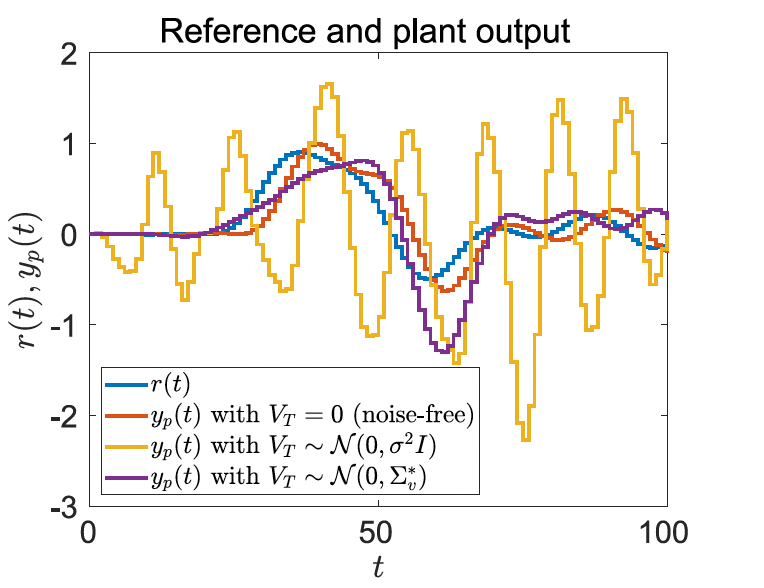
Deep reinforcement learning of event-driven control systems
Using deep reinforcement learning, we are designing a self-triggering system that is effective in reducing the amount of communication in control systems. We regard this as a case study to bridge the gap between model-based and model-free methods.
#Machine learning #Networked control
Rare event modeling for dynamical systems
We are working on modeling methods using heavy-tailed noise and their applications. We pay attention to how to avoid the probabilistic difficulties caused by non-Gaussianity.
Newspaper Misc Paper #Stochastic system #Modeling

Sparse optimal control theory
We are studying the theory and applications of optimal control with sparsity as a cost function.
Paper(theory) Paper(application) #Optimization #Stochastic system
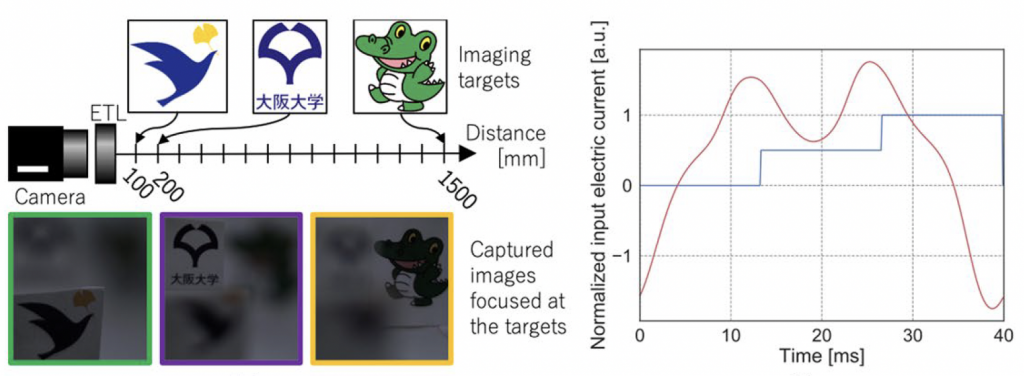
Future topics
Understanding of the comprehensive network connecting human organs
We are participating in the Moonshot R&D program (Goal 2) “Realization of ultra-early disease prediction and intervention by 2050.”
